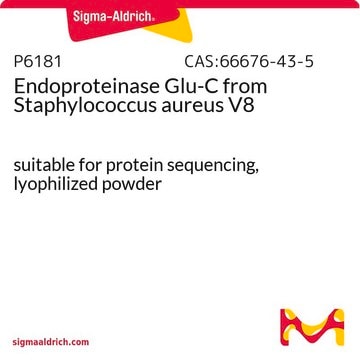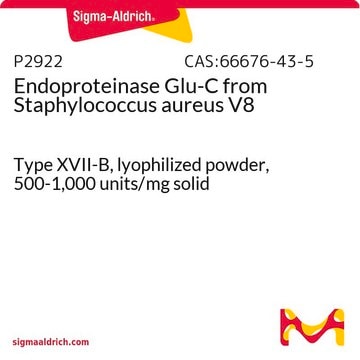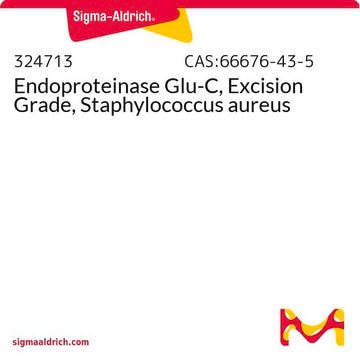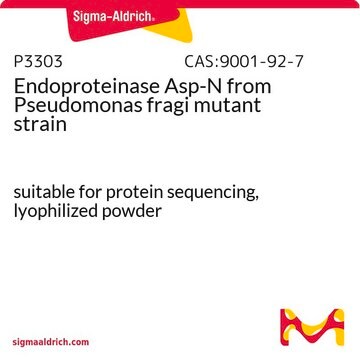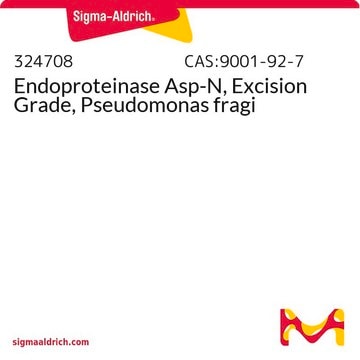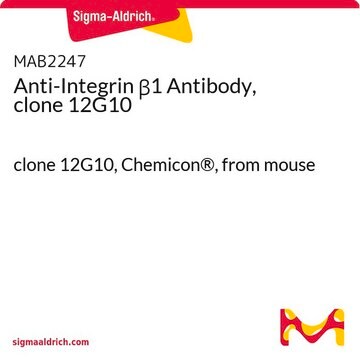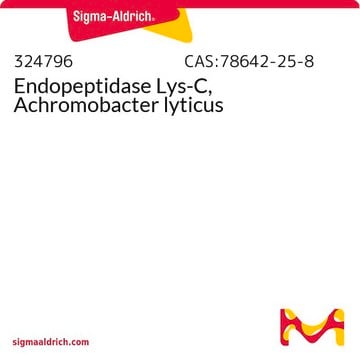10791156001
Roche
Endoproteinase Glu-C (V8 Protease)
from Staphylococcus aureus V8
Synonyme(s) :
V8 protease, protease v8
About This Item
Produits recommandés
Forme
lyophilized (salt-free)
Activité spécifique
20 U/mg
Poids mol.
30 kDa
Conditionnement
pkg of 2 mg
Fabricant/nom de marque
Roche
pH optimal
8.0-8.5
Catégories apparentées
Description générale
Spécificité
Application
Actions biochimiques/physiologiques
Notes préparatoires
Working concentration: 1 to 5 mM
Working solution: Recommended solvent is 50 mM ammonium acetate pH 4.0 (2 mg/ml).
Storage conditions (working solution): -15 to -25 °C
The enzyme (2 mg/ml in 50 mM ammonium acetate, pH 4.0) is stable for at least one month, frozen in aliquots and thawed only once.
Stockage et stabilité
Autres remarques
Mention d'avertissement
Danger
Mentions de danger
Conseils de prudence
Classification des risques
Eye Irrit. 2 - Resp. Sens. 1 - Skin Irrit. 2 - STOT SE 3
Organes cibles
Respiratory system
Code de la classe de stockage
11 - Combustible Solids
Classe de danger pour l'eau (WGK)
WGK 1
Point d'éclair (°F)
does not flash
Point d'éclair (°C)
does not flash
Certificats d'analyse (COA)
Recherchez un Certificats d'analyse (COA) en saisissant le numéro de lot du produit. Les numéros de lot figurent sur l'étiquette du produit après les mots "Lot" ou "Batch".
Déjà en possession de ce produit ?
Retrouvez la documentation relative aux produits que vous avez récemment achetés dans la Bibliothèque de documents.
Les clients ont également consulté
Notre équipe de scientifiques dispose d'une expérience dans tous les secteurs de la recherche, notamment en sciences de la vie, science des matériaux, synthèse chimique, chromatographie, analyse et dans de nombreux autres domaines..
Contacter notre Service technique